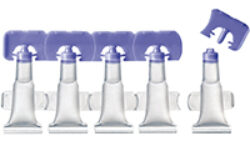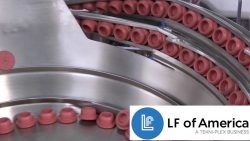
Contract packaging services have emerged as the strategic solution enabling cosmetic, pharmaceutical, and personal care brands to scale efficiently while maintaining product quality and regulatory compliance. As the global contract packaging market reaches $72 billion in 2025, forward-thinking companies recognize that contract packaging services provide more than manufacturing capacity—they deliver specialized expertise, advanced technology, regulatory knowledge, and operational flexibility that would require years and millions of dollars to develop internally. The decision to partner with professional contract packaging services represents a fundamental shift from capital-intensive manufacturing operations to agile, expertise-driven business models that accelerate market entry while reducing financial risk.
Understanding contract packaging services requires recognizing their evolution from basic fill-and-pack operations to comprehensive turnkey solutions that encompass formulation development, regulatory compliance, quality assurance, and supply chain management. Today’s leading contract packaging services function as strategic manufacturing partners who share responsibility for product success while enabling brands to focus resources on core competencies like product innovation, marketing, and customer acquisition.
The increasing complexity of regulatory requirements, rising consumer quality expectations, and rapid technology advancement make contract packaging services more valuable than ever—particularly for emerging brands lacking the capital and expertise to build sophisticated manufacturing operations, and for established companies seeking to optimize operational efficiency and expand market reach without proportional increases in fixed costs and operational complexity.
Understanding Modern Contract Packaging Services
Defining Full-Service Capabilities
Contract packaging services encompass a comprehensive spectrum of manufacturing activities extending far beyond traditional co-packing arrangements. Modern service providers offer integrated solutions that transform raw materials into finished products ready for market distribution.
Core Service Components:
- 📦 Primary Packaging: Product filling, sealing, and container preparation using advanced automated systems
- 📦 Secondary Packaging: Carton assembly, display creation, and retail-ready packaging solutions
- 📦 Labeling & Printing: Regulatory-compliant labeling with variable data printing capabilities
- 📦 Quality Control: Comprehensive testing protocols ensuring product safety and performance
- 📦 Warehousing & Fulfillment: Inventory management and distribution coordination
- 📦 Regulatory Support: Compliance guidance for FDA, international, and industry-specific requirements
Specialized contract filling services integrate these components into seamless operations that deliver consistent quality while maintaining cost-effectiveness across production volumes from pilot batches to large-scale commercial manufacturing.
Industry-Specific Specializations
Contract packaging services require deep industry knowledge to address unique technical, regulatory, and market requirements across different product categories.
| Industry Sector | Specialized Requirements | Critical Success Factors |
|---|---|---|
| Pharmaceuticals | GMP compliance, sterile processing, serialization | FDA registration, validation expertise |
| Cosmetics & Personal Care | Aesthetic packaging, trend responsiveness, customization | Clean room capabilities, flexible batch sizes |
| OTC Medications | Drug regulations, patient safety, labeling complexity | Regulatory expertise, quality systems |
| Nutraceuticals | Dietary supplement compliance, stability protection | Ingredient handling, moisture control |
| Professional Beauty | Premium presentation, sample programs, spa formats | Custom development, small batch efficiency |
The most successful partnerships align brand requirements with providers possessing demonstrated expertise in specific product categories and regulatory environments.
Strategic Benefits Driving Industry Growth
Capital Efficiency and Financial Flexibility
Contract packaging services eliminate the substantial capital investment required for manufacturing facility development, equipment acquisition, and workforce establishment. This financial advantage enables brands to redirect resources toward revenue-generating activities like product development and market expansion.
Capital Comparison Analysis:
Internal Manufacturing Investment:
- Facility construction: $5-15M
- Equipment and tooling: $2-8M
- Quality systems and validation: $1-3M
- Initial inventory and materials: $500K-2M
- Total initial investment: $8.5-28M
Contract Packaging Partnership:
- Development and setup fees: $50-200K
- Initial production minimum: $100-500K
- Quality documentation: $25-75K
- Total initial investment: $175K-775K
The 97% capital reduction achieved through contract packaging partnerships enables emerging brands to achieve market entry while preserving cash for marketing and distribution investments that drive revenue growth.
Access to Advanced Technology and Innovation
Contract packaging services provide immediate access to sophisticated manufacturing equipment and proprietary technologies that would be prohibitively expensive for individual brands to acquire and maintain.
Technology Access Benefits:
- 🔧 State-of-the-Art Equipment: Latest filling, sealing, and inspection systems without capital investment
- 🔧 Proprietary Innovations: Advanced technologies like PentaFill systems offering superior performance
- 🔧 Continuous Upgrades: Ongoing equipment improvements without additional client investment
- 🔧 Multiple Capabilities: Access to diverse equipment types supporting varied product formats
- 🔧 Specialized Facilities: Clean room environments meeting pharmaceutical-grade standards
Technology access becomes particularly valuable as market demands shift and product innovations require specialized manufacturing capabilities that emerging technologies can address.
Regulatory Compliance and Risk Mitigation
Contract packaging services provide established quality systems and regulatory expertise that reduce compliance risk while accelerating market approval timelines.
Compliance Advantages:
- Established Systems: Proven quality management systems meeting FDA cGMP requirements and international standards
- Regulatory Expertise: Experienced personnel knowledgeable about product-specific regulatory pathways
- Audit Readiness: Maintained inspection preparedness reducing approval delays
- Documentation Standards: Complete validation packages and batch record systems
- Change Management: Structured protocols for implementing product or process modifications
The FDA-registered facilities utilized by leading contract packaging services provide immediate regulatory credibility that accelerates product launches while reducing approval risks.
Operational Flexibility and Market Responsiveness
Contract packaging services enable rapid scaling that aligns manufacturing capacity precisely with market demand, avoiding the fixed cost burden of owned manufacturing facilities.
| Business Scenario | Internal Manufacturing | Contract Services | Strategic Advantage |
|---|---|---|---|
| Product Launch | 6-12 month setup | 2-4 month execution | 75% faster market entry |
| Demand Surge | Capacity constrained | Scalable production | Capture growth opportunities |
| Seasonal Variation | Underutilized assets | Aligned capacity | Optimized cost structure |
| Market Testing | High minimum volumes | Flexible batch sizes | Reduced test market risk |
| Portfolio Expansion | Limited by capacity | Unlimited growth | Accelerated innovation |
This flexibility proves particularly valuable in dynamic markets where consumer preferences shift rapidly and brands must respond quickly to emerging opportunities.
Service Types and Operational Models
Primary Packaging Operations
Contract packaging services excel in primary packaging—the direct product-container interface requiring specialized equipment and stringent quality control.
Primary Packaging Capabilities:
- Liquid Filling: Precision volumetric or gravimetric filling for products ranging from 0.5ml unit doses to 500ml+ containers
- Powder/Granule: Advanced systems handling free-flowing and difficult powders with accurate dosing
- Cream/Lotion: Specialized equipment for viscous products requiring gentle handling
- Aerosol: Pressurized product filling meeting safety and performance standards
- Blister Packaging: Pharmaceutical-grade thermoform and cold-form blister systems
Contract filling services specializing in Florida provide geographic advantages for brands serving Eastern US markets and Latin American exports.
Secondary Packaging Solutions
Contract packaging services extend beyond primary packaging to create complete retail-ready products through secondary packaging operations.
Secondary Packaging Services:
- ✅ Carton erection and product insertion with verification systems
- ✅ Shrink wrapping and bundling for multi-unit packages
- ✅ Display shipper assembly for retail presentation
- ✅ Promotional packaging including gift sets and limited editions
- ✅ E-commerce packaging optimized for direct shipping
Turnkey Manufacturing Solutions
Comprehensive contract packaging services offer true turnkey solutions managing the entire production process from formulation through final fulfillment.
Turnkey Service Components:
- Formulation Development: Product creation aligned with target performance and regulatory requirements
- Raw Material Sourcing: Procurement and qualification of ingredients and packaging materials
- Manufacturing: Complete production under GMP-compliant quality systems
- Quality Testing: Comprehensive analytical testing supporting batch release
- Packaging Design: Structural and graphic development optimized for brand positioning
- Distribution: Warehousing and fulfillment coordination supporting market launch
Turnkey cosmetic solutions enable brands to launch products with minimal internal infrastructure while maintaining complete control over brand identity and market positioning.
Selection Criteria: Choosing the Right Partner
Technical Capabilities Assessment
Contract packaging services selection requires thorough evaluation of manufacturing capabilities aligned with specific product requirements.
| Capability Category | Evaluation Factors | Verification Methods |
|---|---|---|
| Equipment Precision | Fill accuracy, speed capability, changeover efficiency | Capability studies, site inspection |
| Quality Systems | Testing protocols, validation documentation, audit history | Quality manual review, certification status |
| Facility Standards | Clean room classification, environmental controls | Facility tour, environmental monitoring data |
| Capacity Availability | Current utilization, expansion capability, priority access | Production schedule review, capacity commitments |
| Technical Expertise | Staff qualifications, problem-solving history, innovation support | Reference checks, technical discussions |
Regulatory Credentials and Compliance History
Contract packaging services must demonstrate established regulatory compliance and audit performance across relevant jurisdictions.
Regulatory Verification Requirements:
- FDA Registration: Current facility registration with no outstanding warning letters or consent decrees
- GMP Certification: Appropriate good manufacturing practice compliance for product categories
- ISO Certifications: Quality management system standards (ISO 9001, 13485 for medical devices)
- Customer Audits: Successful completion of brand and regulatory authority inspections
- International Approvals: Relevant certifications for export markets (Health Canada, EU regulations)
Reviewing FDA inspection databases provides valuable insight into compliance history and regulatory standing.
Geographic and Logistical Considerations
Contract packaging services location significantly impacts supply chain efficiency, regulatory compliance, and operational coordination.
Location Advantage Factors:
- 🌎 Proximity to Markets: Reduced shipping time and cost to primary distribution points
- 🌎 Raw Material Access: Efficient sourcing of ingredients and packaging materials
- 🌎 Regulatory Environment: State-level incentives and streamlined approval processes
- 🌎 Labor Pool: Availability of skilled pharmaceutical and cosmetic manufacturing personnel
- 🌎 Port Access: International shipping efficiency for import/export operations
Southeast US Manufacturing Benefits include lower operational costs than Northeast/West Coast markets, easy Latin American access, and growing pharmaceutical manufacturing infrastructure with specialized workforce development through Florida’s pharmaceutical corridor.
Cost Structures and Pricing Models
Understanding Service Pricing Components
Contract packaging services pricing reflects multiple cost elements that vary based on product complexity, volume, and service scope.
| Cost Element | Typical Range | Key Drivers |
|---|---|---|
| Setup/Development | $25K-150K | Formulation complexity, validation requirements |
| Per-Unit Production | $0.15-3.50 | Filling complexity, packaging materials, labor intensity |
| Quality Control | $0.05-0.75/unit | Testing requirements, documentation standards |
| Packaging Materials | $0.25-5.00/unit | Container type, decoration complexity, ordering volume |
| Warehouse/Fulfillment | $15-75/pallet/month | Storage requirements, turnover frequency |
Volume Discounts and Minimum Order Quantities
Contract packaging services typically implement volume-based pricing structures that reward larger production commitments while accommodating smaller initial orders.
Volume Pricing Framework:
- Pilot/Test Batches (1K-10K units): Premium pricing offsetting setup costs
- Small Commercial (10K-100K units): Standard pricing with moderate discounts
- Mid-Volume (100K-500K units): 10-20% discounts reflecting improved efficiency
- Large-Scale (500K+ units): 20-35% discounts maximizing automation benefits
Advanced technologies like PentaFill systems enable efficient small-batch production, reducing traditional minimum order quantities that exclude emerging brands.
Quality Assurance and Testing Protocols
Comprehensive Quality Control Programs
Contract packaging services implement multi-stage quality control programs ensuring consistent product quality and regulatory compliance.
Quality Control Framework:
- Incoming Material Inspection: Verification that raw materials meet specifications before production
- In-Process Controls: Real-time monitoring of critical process parameters during manufacturing
- Finished Product Testing: Comprehensive analytical testing before batch release
- Stability Studies: Ongoing monitoring supporting shelf-life claims and storage requirements
- Environmental Monitoring: Continuous facility condition tracking ensuring controlled manufacturing
Unit dose packaging services require particularly stringent quality controls due to precision dosing requirements and individual package integrity verification.
Frequently Asked Questions
Conclusion: Strategic Advantage Through Expert Partnership
Contract packaging services have evolved from simple manufacturing outsourcing to strategic partnerships enabling accelerated growth, operational excellence, and market success. The decision to leverage professional contract packaging services represents a fundamental choice about how brands allocate resources—investing heavily in manufacturing infrastructure versus focusing on core competencies that differentiate brands and drive customer acquisition.
Key strategic advantages:
- Capital efficiency enabling market entry with minimal financial investment
- Expert access providing specialized knowledge and regulatory compliance
- Technology leverage utilizing advanced equipment without ownership costs
- Operational flexibility scaling capacity precisely with market demand
- Risk mitigation through established quality systems and compliance expertise
- Speed to market achieving product launches 40-60% faster than internal development
The most successful brands recognize that manufacturing excellence requires specialized expertise and substantial capital investment that diverts resources from brand-building activities. Contract packaging services enable companies to access world-class manufacturing while maintaining laser focus on product innovation, marketing excellence, and customer relationship development that drive sustainable competitive advantage.
Ready to Explore Contract Packaging Solutions?
LF of America offers comprehensive turnkey solutions combining advanced PentaFill technology, ISO 8 clean room facilities, and extensive regulatory expertise to help cosmetic, pharmaceutical, and personal care brands achieve manufacturing excellence.
Contact our Florida facility to discuss how professional contract packaging services can transform your product development and market success.





